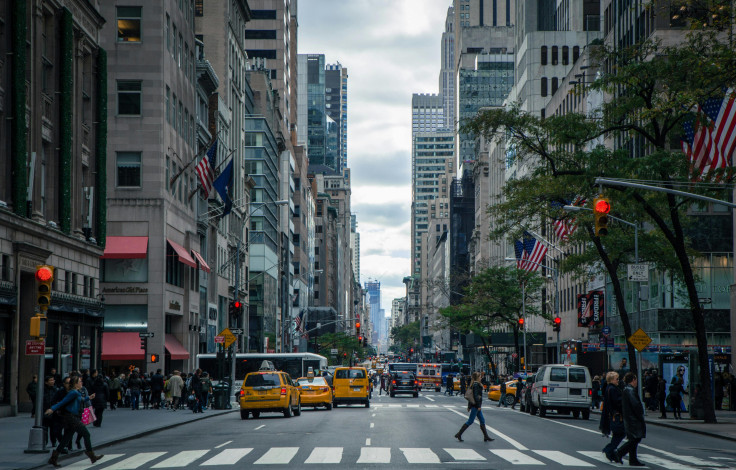Are New Yorkers Really Fleeing After Zohran Mamdani Wins Mayoral Race? Let's Look At the Facts
Claims of a mass exodus from New York City tied to Zohran Mamdani's victory lack clear empirical basis.

A wave of commentary has swept across national media, suggesting that New York City residents are fleeing the city in droves following Zohran Mamdani's election.
Donald Trump publicly declared that New Yorkers would leave the city after Mamdani's win, yet a review of the data and reporting reveals scant evidence of a broad-based exodus.
Trump's Prediction And Early Signals
On 6 November 2025, Trump declared that New Yorkers would 'flee to Florida' after Mamdani's win, labelling the mayor-elect 'a communist.'
Trump's comments, made during a campaign rally in West Palm Beach, were part of a broader attack on what he described as New York's 'radical turn'. He claimed that the city's progressive leadership would drive residents and businesses to seek refuge in lower-tax states like Florida.
Following his remarks, some media outlets reported that real-estate brokers in South Florida had seen a noticeable uptick in inquiries from New York residents.
The Miami Association of Realtors cited a modest increase in out-of-state interest in July 2025, coinciding with Mamdani's primary victory. However, these were preliminary indicators; expressions of curiosity rather than evidence of a verifiable migration wave.
Polling and Population Data Tell a Different Story
A poll conducted shortly before the election found that around 9 percent of respondents said they would 'definitely leave' New York if Mamdani won, while another 25 percent said they were 'considering it.'
While these numbers were widely reported, they reflected sentiment, not actual behaviour. Historically, such polling often exaggerates eventual relocation figures, as economic, family, and career constraints temper most intentions to move.
@thedailyshow If a million apartments get freed up by fleeing New Yorkers, this would be the fastest a mayor has ever delivered on a campaign promise #DailyShow #NYC #Mamdani
♬ original sound - The Daily Show
So far, there is no statistically significant data from the US Census Bureau, USPS address change requests, or moving companies showing a sharp outflow of New Yorkers after Mamdani's victory. Despite the political noise, there has not yet been a measurable migration surge linked to Mamdani's election.
A History of Threatened Departures
Claims of wealthy New Yorkers 'fleeing' the city are hardly new. Similar warnings surfaced during Bill de Blasio's tenure, and again during the height of the COVID-19 pandemic, when the city saw temporary population dips driven by remote work and health concerns. Many of those who left eventually returned once conditions stabilised.
The rhetoric of exodus often spikes whenever new taxes or progressive policies are introduced. Yet long-term data show New York's population fluctuations remain primarily tied to economic cycles, housing affordability, and national mobility trends, not political leadership changes.
For example, between 2020 and 2024, New York's population decline slowed significantly after an early pandemic drop, indicating that the city's appeal remains resilient despite recurring predictions of mass flight.
Economists point out that the costs and complexities of relocation make it unlikely for large numbers of middle-class or working-class families to move solely for political reasons.

Trump's warning fits into a larger political strategy. By framing Mamdani's victory as emblematic of socialist overreach, he can rally support among conservative voters in Florida and other swing states. Florida Senator Rick Scott has even amplified the narrative with ad campaigns inviting New Yorkers who 'hate socialism' to move south.
Community groups within New York emphasise that Mamdani's policies focus on affordable housing, public transport, and climate resilience; issues that resonate deeply with younger voters and working-class residents.
Early polling after his win shows approval ratings above 55 percent citywide, indicating that many New Yorkers are optimistic about his leadership, even if scepticism persists among wealthier enclaves.
While New York's tax regime and cost of living remain high relative to national averages, these factors alone have not historically caused sustained population collapse. The pattern often sees brief outflows during political or economic uncertainty, followed by rebounds once confidence returns.
Therefore, while some upper-income individuals may indeed explore relocation options, there is currently no empirical basis for calling the trend a 'mass exodus'. The narrative appears to be driven primarily by political rhetoric, media amplification, and online speculation, not verifiable movement.
As of now, the alleged exodus is more a political talking point than a demographic fact. Whether the coming months reveal genuine movement will depend not on rhetoric but on evidence.
New York City, as history has shown time and again, tends to outlast its critics.
© Copyright IBTimes 2025. All rights reserved.





















